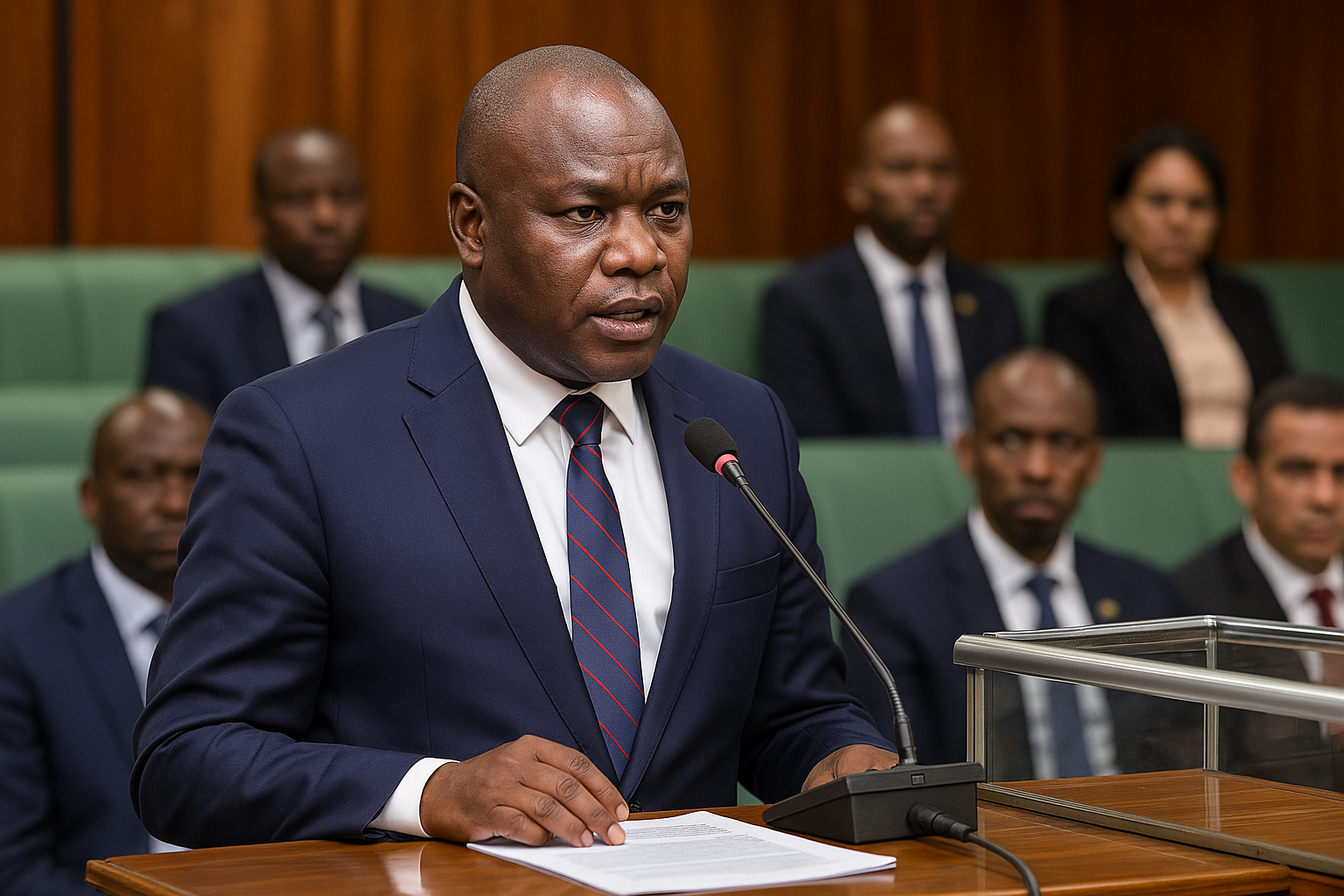Ugandan Govt Cuts UMEME Buyout Loan Request from $190M to $118M After Audit
“This morning, the Auditor General submitted a special audit report, verifying and confirming the buyout amount of US$118 million against the earlier approved US$190 million,” Tayebwa told the House.

- Country:
- South Africa
In a major development regarding Uganda’s energy sector, the Government has revised its earlier request to borrow over US$190 million to buy out electricity distribution company UMEME, slashing the proposed loan figure to just over US$118 million. This change follows the release and adoption of a Special Audit Report submitted by the Auditor General, which verified UMEME’s investment value as significantly lower than initially projected.
The revised loan request was formally adopted during a plenary sitting held on Thursday, 27 March 2025. The report was tabled before Parliament by Hon. Henry Musasizi, the Minister of State for Finance, Planning and Economic Development (General Duties), just a week after Parliament had initially approved the higher loan figure pending confirmation of the actual investment value by the Auditor General.
The move to reduce the loan amount is seen as a significant fiscal adjustment, particularly as Uganda prepares to end its long-term electricity distribution concession with UMEME Limited, which has been in place for nearly two decades. The buyout is intended to allow the government, through the Uganda Electricity Distribution Company Limited (UEDCL), to take back full control of power distribution.
Deputy Speaker Defends Urgency of Decision
Deputy Speaker of Parliament, Thomas Tayebwa, defended the urgency in adopting the special audit report, emphasizing that the report was time-bound and the government had until 31 March 2025 to finalize the buyout as stipulated in the contractual terms with UMEME.
“This morning, the Auditor General submitted a special audit report, verifying and confirming the buyout amount of US$118 million against the earlier approved US$190 million,” Tayebwa told the House.
He further warned that failure to meet the deadline would grant UMEME leverage to impose penalties and interest charges, which could result in significant financial liabilities for the government.
Opposition Raises Accountability Concerns
Despite the urgency, several opposition MPs raised objections to the manner in which the report was handled and adopted. Kira Municipality MP, Hon. Ibrahim Ssemujju Nganda, strongly questioned why the report had not been subjected to scrutiny by the relevant parliamentary accountability committees.
“We have never passed a report of the Auditor General without MPs reading it. We have accountability committees that deal with these reports. Have you waived those particular rules that [now] reports can be passed without MPs processing them?” Ssemujju queried.
Leader of the Opposition, Hon. Joel Ssenyonyi, echoed similar concerns, warning that Parliament risked abdicating its appropriation mandate to the Executive by approving financial decisions without thorough analysis.
“The Auditor General’s report should be verified and studied before we pass it. It would be good to know what is in the report,” Ssenyonyi urged.
Precedents from the Region and Legal Justifications
However, several MPs sided with the Deputy Speaker, citing the exceptional nature of the report. Hon. Geoffrey Ekanya (FDC, Tororo North County) supported fast-tracking the process, noting that neighboring countries like Kenya, Tanzania, and South Africa handle similar special reports through executive processes without necessarily involving Parliament at every stage.
“Special audit reports often contain issues of a criminal or urgent nature. This report is time-sensitive. We request the Speaker to invoke the necessary rules so that Parliament acts within its mandate but with speed,” Ekanya said.
In his guidance, the Deputy Speaker clarified that special audit reports, unlike annual audit reports, are not required to be referred to committees due to their urgent and often contractual nature.
“This is a time-bound report. We must sort out UMEME by 31 March. If we do not settle, UMEME will have a blank cheque to determine penalties and interests,” Tayebwa emphasized.
Background to the UMEME Buyout
UMEME’s 20-year concession, signed in 2005, allowed the private distributor to manage electricity distribution under a lease and assignment agreement with UEDCL. The decision to buy out UMEME before the expiration of the concession stems from a broader government policy to regain control over critical infrastructure and improve service delivery in the energy sector.
The Auditor General’s special audit report was commissioned to establish the actual value of UMEME’s recoverable investments, which form the basis for the buyout. The initial estimate had been pegged at over US$190 million, but following verification, the figure was adjusted downwards to US$118 million, resulting in a significant saving for the government.
Next Steps
With Parliament’s adoption of the revised loan request, the government is now expected to proceed with the borrowing arrangement—now valued at US$118 million—from Stanbic Bank or another financier, and finalize the buyout process with UMEME before the 31 March deadline.
The development marks a significant milestone in Uganda’s transition toward full public control of electricity distribution and underscores ongoing debates about executive power, parliamentary oversight, and fiscal prudence in public sector decision-making.
- READ MORE ON:
- Thomas Tayebwa
- UMEME
- Henry Musasizi










